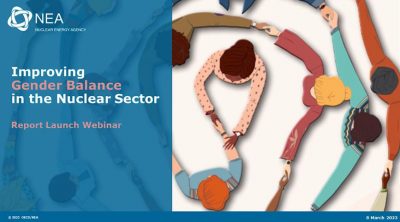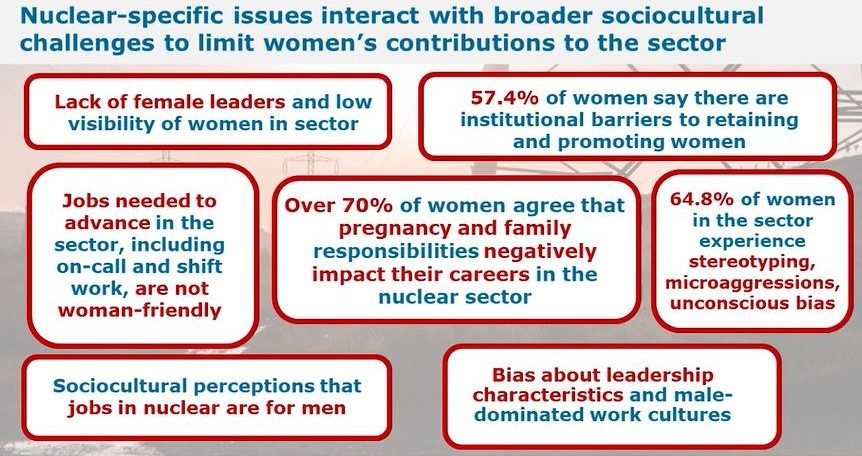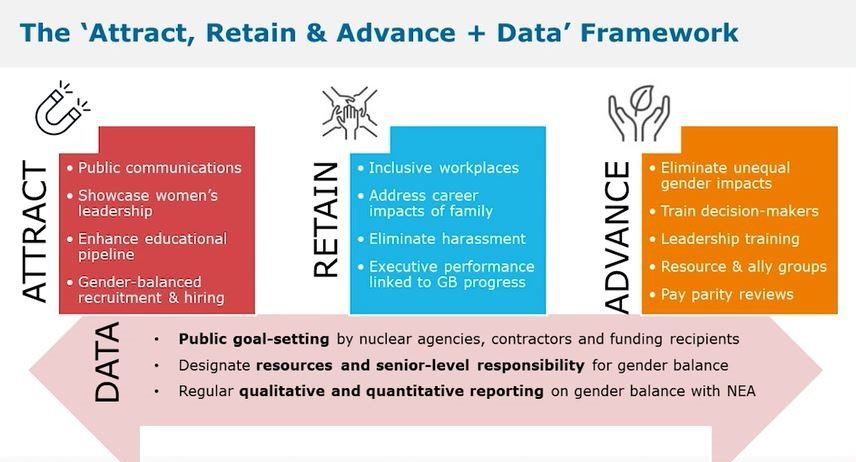
On March 8, coinciding with the International Women’s Day, our group attended the webinar “Improving gender balance in the nuclear sector: Report launch“ organized by the Nuclear Energy Agency (NEA) of the Organization for Economic Co-operation and Development (OECD).
The nuclear industry is a crucial part of our energy infrastructure, providing a significant portion of the world’s electricity. However, the sector has traditionally been male-dominated, with women making up only a small fraction (less than 25%) of the workforce. The same applies to its sub-sectors including fusion where our group belongs.
In the webinar on March 8, a report was launched to address the issue of gender imbalance in the nuclear sector. The report provides insights and recommendations based on the first publicly available international data on gender balance in the nuclear sector. The data was collected from over 8 000 women in the nuclear workforce in 32 countries, as well as human resources data from 96 nuclear organisations in 17 countries. Based on the findings, a comprehensive, evidence-driven policy framework is proposed with practical recommendations.
Female scientists and engineers pioneered the nuclear and radiological fields, with leaders and innovators such as Marie Skłodowska-Curie and Lise Meitner, among many others, establishing the foundation of modern nuclear science and technology. Women continue to make vital contributions to the sector, but their visibility and overall numbers in the sector remain limited, especially in science, technology, engineering, and mathematics (STEM), and leadership roles. The lack of diversity in the sector represents a loss of potential innovation and growth and a critical threat to the viability of the field.

The report identifies several key factors that contribute to the gender imbalance in the nuclear sector, including a lack of female role models, limited opportunities for career progression, and a culture that can be unwelcoming to women. The report also highlights several promising initiatives that are working to address these issues, including mentorship programs, leadership training, and networking opportunities for women in the industry.

The report launch webinar featured several speakers who discussed the findings and recommendations of the report. They emphasized the importance of increasing diversity in the nuclear sector, both for the benefit of the industry and to ensure that the energy sector as a whole is able to meet the challenges of the future.
Overall, the webinar provided valuable insights into the challenges faced by women working in the nuclear sector and the initiatives that are working to improve gender balance in the industry. By taking concrete steps to address these issues, the nuclear sector can become more diverse, inclusive, and better equipped to meet the energy needs of the future.
The full 112 page report with all its findings and recommendations can be downloaded from this link.
